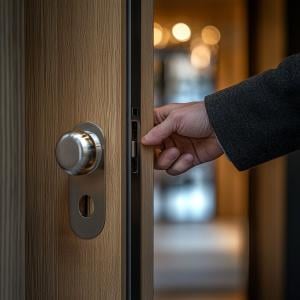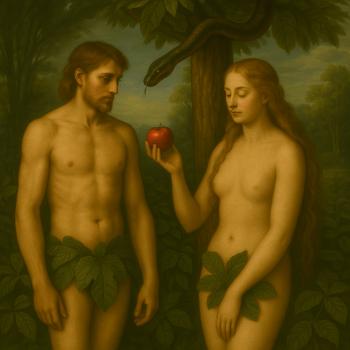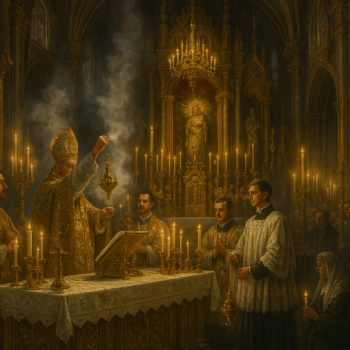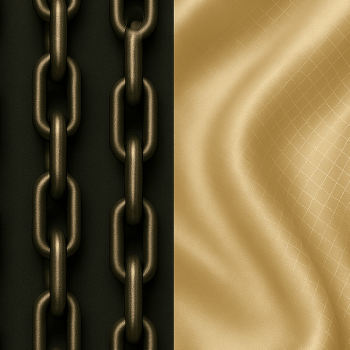What do we do when we no longer believe?

A good friend is a well-known personality in the religious deconstruction space. He was asked to speak at a progressive Christian church about deconstructing religion while remaining in church. Like me, he finds that as more people ask questions about religion, fewer people stay in church. “What am I going to tell them?” he wondered aloud. “Most people with questions eventually leave.”
For me, deconstruction was an unraveling, where pulling on one thread loosens the next stitch. So, if there was no original sin (which was a term coined by St. Augustine in the fourth century), then there would be no cosmic rift between God and man, no need for atonement, and no reason for Jesus’ senseless and violent death.
Also, many who study the question of free will conclude that we do NOT have free will (or, at least, that we do NOT have as much free will as we think that we have.) If we do NOT have free will, then why would a just and merciful God establish rules that we can NOT follow? And why would this God punish or reward us for “choices” that we are NOT able to make?
What Could Go Wrong?
My religion was a revealed religion. Its doctrines were absolute, authentic, original, rational, unchanging and universal. Or so I thought. And, with 2 billion believers, 2,000 years of history, and a book that sold more copies than any other book, what could go wrong? A lot, it turns out.
Christianity borrowed from Judaism, Zoroastrianism and other religions, as well as from Greek, pagan, and Roman mythology. The Bible is not univocal; its books reflect different theologies, and the stories about Jesus became more elaborate as time passed. The church created some doctrines, including original sin, the Trinity, and substitutionary atonement, centuries after Jesus’ death.
That does NOT mean that particular beliefs are wrong. It simply means that when we investigate what we believe and why we believe it, we will likely realize that our foundations are pretty shaky. “What is the biggest problem that Christianity faces?” a good friend recently asked me. “It’s not the beliefs themselves,” I said. “It’s the false sense of certainty that we often project on them.”
What happens when we realize that we do NOT believe the same things that our church teaches or that other believers believe? Should I stay or should I go? One famed Christian writer wondered what we can do if we discover that doctrines such as original sin, the Trinity, and substitutionary atonement do NOT pass muster. “We can’t just abandon 2,000 years of theology, can we?”
That depends. If we are seeking comfort, then we can NOT abandon our beliefs, but if we are seeking Truth with a capital T, then we can abandon them. In fact, we probably should do so.
Why Did I Wait So Long?
Last week, I wrote about first leaving Catholicism and then leaving Protestantism here. In both cases, I waited until it got really awkward for me and those around me. At first, I rationalized it. After all, I held on as long as I could. I left when I had to leave. And I tried to make it work. I was willing to tolerate these churches and church members, but they were NOT willing to tolerate me.
Then, I wondered why I waited so long. In fact, I felt quite a bit of shame about it. For years, I sat comfortably and quietly in a Catholic church, while my Protestant family and friends, as well as my divorced Catholic family and friends were denied communion, and my LGBTQ+ family and friends were told that they were “intrinsically immoral” and “objectively disordered.”
I served on a diocesan committee where I witnessed firsthand the clericalism, the infighting between conservative and liberal, and the immoral and insensitive response to the clergy abuse crisis. Why did I stay? And why was it so important to hold onto an identity that no longer suited me? Why did I remain silent until the church’s unkindness impacted me so directly and so personally?
A Catholic friend once asked me what he could do, as one person among 1 billion people, about the clergy abuse crisis in the Catholic church. “You can start by talking to your bishop,” I suggested. He wrote a long letter, and he received a canned response from a diocesan staff member. It was as condescending and defensive and evasive as you can imagine. My friend stayed anyway.
How Much Time Do We Have?
A Catholic priest assured me that, “The Church is a large institution. Maybe in 100 years, the Church will embrace some of these changes that you are seeking.” Sure, but I do NOT have 100 years. A progressive Evangelical assured me that, “Maybe in 20 years, the old conservative Christians will die off, and the churches will embrace change.” Sure, but I do NOT have 20 years, either.
(I do NOT like to think that people have to die before churches can change. This reminds me of something that physicist Max Plank once said, “Science progresses one funeral at a time.”)
Should I stay or should I go? The answer is different for everyone, and I would NOT pretend to know what is best for anyone or everyone. For me, because I sat comfortably and quietly for so long, I realize that I stayed too long. In retrospect, the time that I spent trying to make excuses or rationalize things or wait for things to change would have been better spent finding a better home.
As I left church, my family and friends noticed that I was more open-hearted and open-minded. So, I cried more, and I laughed more. I had more friends and deeper friendships. At the same time, I experienced freedom, gratitude, joy and a sense of purpose. I was NOT a cynical, nihilistic, and selfish malcontent. Now, I have more awe, gratitude, reverence and a sense of responsibility.
What Do We Do When We No Longer Believe?
Does your church embrace you unconditionally? And does it respect people with different beliefs and worldviews? Does it welcome people of different genders, races, and socioeconomic status?
If so, then you are fortunate to be there. If not, then why are you still there?
If you want to keep up with the latest from You Might Be Right, please subscribe.
The Way received a 2024 Nautilus Book Award.
If you enjoyed this article, please leave a comment at the bottom of this page.
Thanks for reading You Might Be Right!!














